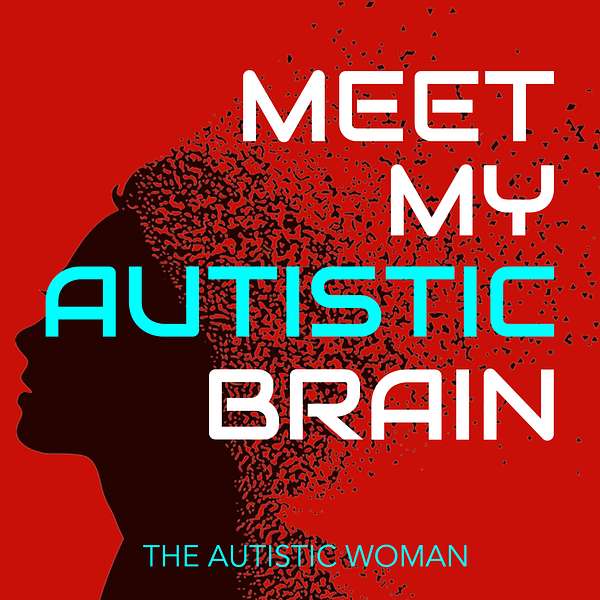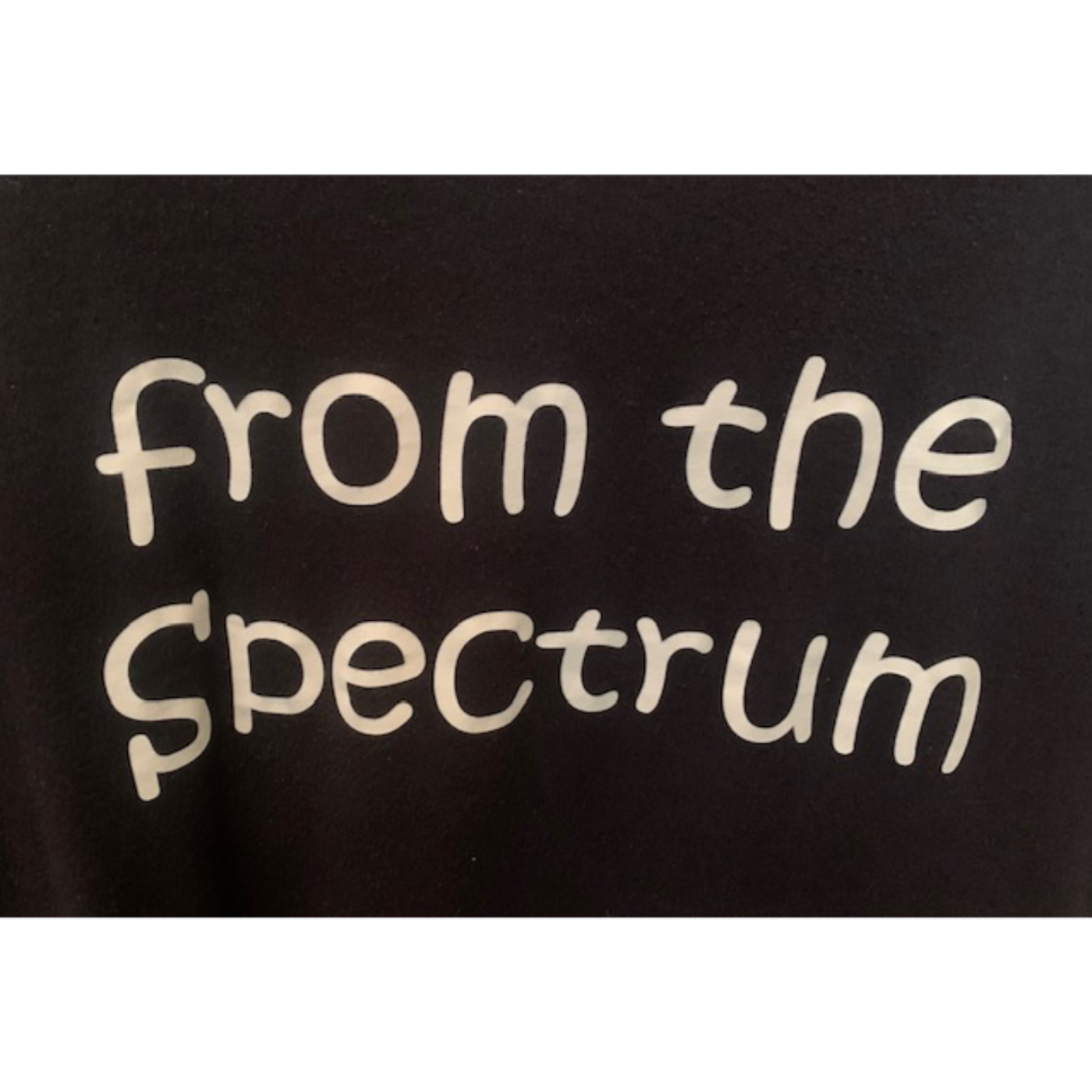
Meet My Autistic Brain
What is it like to find out late in life that you are autistic? The Autistic Woman talks about life experiences and how autistic traits affect her as an adult. You'll hear personal stories, opinions about research and the importance of autistic voices. Includes some fun stuff too and interviews of autistic guests! This podcast is primarily for adult autistics and their family and friends. It's one of the top 0.5% most popular shows globally as ranked by Listen Score with more than 1,000,000 downloads.
Meet My Autistic Brain
Executive and Cognitive Function
Use Left/Right to seek, Home/End to jump to start or end. Hold shift to jump forward or backward.
When you don’t feel like doing anything it may not be laziness. If you’re autistic it could be due to executive and cognitive functioning. Don’t miss this to learn more!
Tell your friends and family about this podcast. Let’s spread the word about what it’s like to be autistic.
Please take a moment and rate/review the podcast. It takes seconds to rate it and just a minute to review it. By doing so you help make this content available to more autistics.
Slava Ukraine!
Sunsama free trial: https://try.sunsama.com/xi4blkokndgk
RATED IN THE TOP 0.5% GLOBALLY with more than 1,000,000 downloads!
If you are an autistic person who has written a book about autism or if you have a guest suggestion email me at info@theautisticwoman.com.
Instagram
Ko-fi, PayPal, Patreon
Linktree
Email: info@theautisticwoman.com
Website
They say a messy desk is the sign of a creative mind. It can also be an issue with executive functioning. I have a friend who tells his family not to move anything on his desk or he’ll never find it again. My desk has stacks of files and papers. I say if I don’t see it on my desk, it doesn’t exist. Any of this sound familiar?
This episode is one of 2 about executive and cognitive function.These are 2 important functions of the brain that make it possible to regulate, control, and manage our thoughts and behavior.
Executive functions are carried out in the frontal lobe of the brain. They act as the directors in our brain that help us with:
Planning
Problem-Solving
Verbal Reasoning
Working Memory
Attention
Inhibition
Initiation of Actions
Monitoring of Actions
Cognitive Flexibility
These aren’t separate things, they work together, they even overlap.
Executive function is the high level thinking and functioning of the brain. It’s used to control and coordinate cognitive processes, abilities and behaviors.
An analogy would be that executive function is like the conductor of an orchestra and cognitive function is like the instruments.
We’re born with executive and cognitive function and with the ability to develop them. It takes time for them to mature. The frontal lobe doesn’t fully develop until our mid-20s.
EFs are essential in reading, math, building social and emotional competence and self-regulation. They help us connect past experience with present action. They play a part in just about everything we do in life.
Executive function allows us to differentiate among conflicting thoughts, determine good and bad, same and different, understand consequences, set goals, predict outcomes, form expectations based on our actions, and have social or self “control”.
EFs make it possible for us to mentally play with ideas, quickly and flexibly adapt to changed circumstances, take time to consider what to do next, resist temptations, stay focused, and handle the unexpected.
The ability to become aware of our communication and to interpret others' mental states is linked to EF.
Each executive function serves a purpose.
Planning and Prioritizing - Ability to plan daily tasks, assess needs, formulate and evaluate options, and chosen the ones to achieve a goal.
It helps us with activities that take multiple steps like cooking, managing a schedule, shopping, laundry, grooming, driving.
It’s not laziness because I won’t take the recycle out to the garage, well, the recycle bin is too small, it’s executive function. It’s also EF that I don’t just get a larger bin.
—-
Problem-Solving - identify and handle problems and obstacles in order to reach a goal. Lets us change course, try alternatives, handle the unexpected. Combined these abilities keep us from being stuck and from catastrophizing.
As an autistic I consider myself to be a good problem-solver. I see solutions others don’t see. I notice when things are problems that other people don’t pay attention to, things like wasting resources, using more energy than necessary and becoming more efficient at work or in daily activities.
It may be that an autistic person is limited when it comes to handling personally-related problems and I don’t know if that means that non-autistics are any better at it.
—-
Verbal Reasoning - is the ability to understand, analyze and think critically about concepts presented in words.
I once had some deficit in reading comprehension and I now have improved. Verbal reasoning has always been a weak spot, I just didn’t know what it was called until recently.
I sometimes find myself asking “what does that mean?” Or “what do they mean by that?” Often with highway directional signs and warning signs, which is not good. It’s been a decades-long complaint that directions aren’t more specific. Like when you’re about to drive around a blind curve and you see a sign indicating it’s 500 feet to your exit. At 65 mph or 105 kph that’s 95 feet per second. You have about 5 seconds to decide how to navigate your speed and direction and get off at the exit. Is it just me who has an issue with that?
I absolutely believe that only an autistic person can accurately and adequately write the text for directions, instructions and signs.
Verbal reasoning helps us solve math word problems. I’m really good at math. Do you remember the word problems which started with Train A leaves the x station at x speed and Train B leaves y station at y speed. How long will it take until they pass each other? My first thought on the train questions was always, who cares?
Verbal reasoning is how we accurately paraphrase or retell stories. I recently decided not to talk about an interesting show or podcast episode except in the most intentionally general of terms. I’ve embarrassed myself by starting to recount the information only to be stuck mid-thought. It’s just better to stay silent.
Did you ever read a multiple choice question and think that none of the answers were 100% correct? The law school entrance exams are intentionally written that way. I took a prep class to learn how to pick an answer without arguing it in your head. There was a waiting list to get into that class.
—-
Inhibition - simply put it’s the ability to suppress a thought or idea and refrain from acting on it.
Psychologists say that stimming, fidgeting, repeating sounds or words (aka echolalia) meltdowns, lack of impulse control and speaking before thinking are autistic traits that fall into this category. Can you resist temptation? Do you consider the consequences before acting? Executive function gives us the ability to suppress a thought or idea. I can’t stop thoughts and ideas. I have learned how to refrain from acting on them.
I think lower inhibition is why people can take risks as entrepreneurs. It’s important for creative and inventive people to have lower inhibition imo.
—-
Working Memory - Ability to follow instructions, pay attention, use relevant information while in the middle of an activity. The ability to hold and manipulate info consciously in the mind. Working memory is the same process we use to comprehend reading, to solve math problems or to figure out why someone is saying what they’re saying. It helps us reproduce a drawing from memory and recall things without using notes.
I recently had a yearly physical exam and was given two cognitive tests apparently to evaluate cognitive decline. I was first told to draw a clock face, which I passed. I had to jokingly ask if the doctor was referring to a digital clock.
I then was then given some words to remember. No they weren’t person, woman, man, camera, tv. Honestly I was so concerned that the doctor would think I have dementia because that’s the bias about working memory, that I kept repeating the words over and over again in my mind. At the end of the exam he asked me and I performed flawlessly. I successfully hid autism.
I do have a strange issue with working memory and long-term memory. There are some things I can learn immediately and remember long-term, like math and science. There are other things that I can’t seem to learn or retain. I find that years later though my brain did actually store what I thought I hadn’t learned and allowed me to retrieve it. Physics and art history come to mind. I felt like I had a hard time understanding the concepts or recalling dates and artists yet years later they fell into place for both subjects. It’s as if the information bypassed working memory and went straight to long-term memory, unfortunately that long-term took years.
Autistics can relate to this one: I can watch a movie or show repeatedly because I remember the feeling I got but not the plot details. Have a vague idea of the plot. I can read a book a year later as if it’s the first time I’ve read it.
——-
Attention - Autistics are certainly good at focusing our attention. Some of us struggle to shift it to something else.
Transitions can be hard. Persistence is a strength.
Distractions can make it difficult to stay focused. The first time I heard the term multi-tasking I thought what is that and why would anyone want to do it?
Attention deficits can make it hard to listen to someone in a conversation while music is playing in the background. There are times when sensory information takes a priority and our attention shifts to those sensations we’re feeling.
In the next episode I’ll cover the remainder of the subject of episode and cognitive function.
Make sure you share this podcast with your friends and family. Let’s help people understand what it’s like to be autistic.
———-
Podcasts we love
Check out these other fine podcasts recommended by us, not an algorithm.

Atypical: The Podcast
The Atypical Crew

